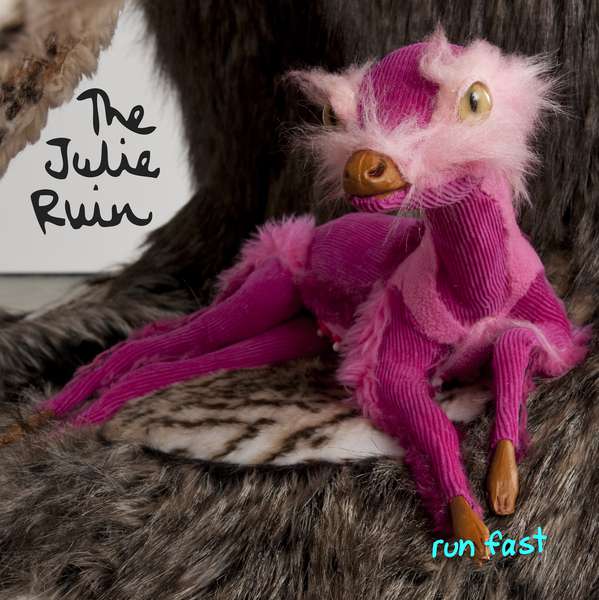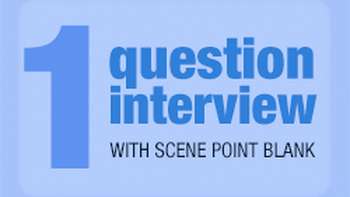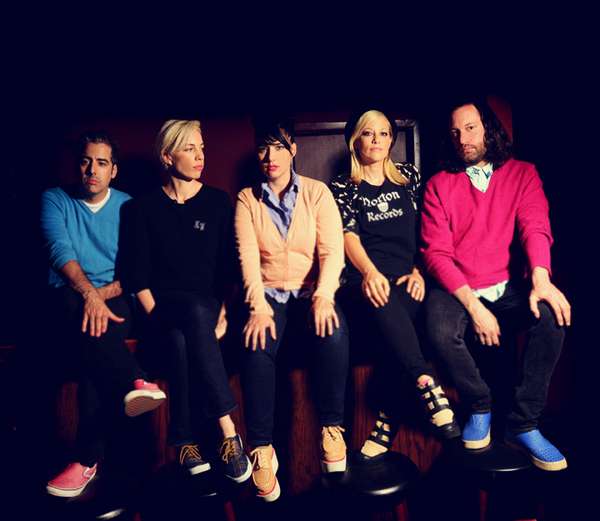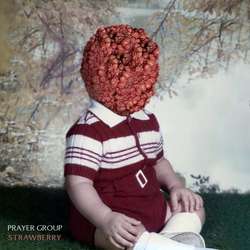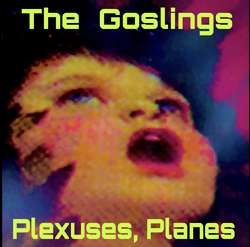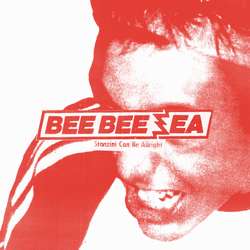The onesheet drops the term “subversive pop.” While the term may apply lyrically, musically The Julie Ruin is more ‘80s pop in sound. Keyboards lead the melodies and punchy vocals with earworm melodies are at the core, accentuated by a range of percussion accompaniments and funky, danceable bass lines.
The Julie Ruin is a continuation of Kathleen Hanna’s 1998 self-titled Julie Ruin record (adding a “the” to signify the addition of a full band whereas the late ‘90s record was Hanna alone). It’s interesting to see a one-off from 15 years ago resurface, and the record is a surprising fit with its predecessor considering the time lapse and additional members. The new members don’t change the sound much other than adding vocal layers and switch-ups, and perhaps there is more prominent guitar and bass and fewer effects on Run Fast, also indicative of the surrounding cast. As a blanket statement: it is pop music, heavily steeped in sweeping and melodramatic ‘80s big tones, but the vocals are pure Hanna: forceful, direct, and political in tone, fitting snuggly between her other projects: Bikini Kill and Le Tigre. While she’s played varied musical styles, her vocals have never strayed far from her signature shouty style. There is definitely some bleed through from Le Tigre into The Julie Ruin, but this is fully expected as Le Tigre partially came about in her attempt to form a band to tour on the original Julie Ruin album.
Where Run Fast is at its best, it’s a unique, snarling beast such as the title track— which is like a punk rock-toned ‘80s film montage where the heroine overcomes adversity to triumph in the end. The key has a distinct reminiscing feel and the past tense lyrics complement this. Other big songs include “Ha Ha Ha,” something of a dance-punk song with some thrift store keyboard blips that push the melody along, and the opening “Oh Come On,” which is a message statement for the record: it’s staccato and punchy, brings the 1998 record to mind, and then adds some powerful punk guitars atop. The record is a little less successful with songs like “Just My Kind,” which takes a more minimal approach, or when they trade off singers, as in “South Coast Plaza.”
To reference ‘80s pop is a starting point and, perhaps, a defining point for the band, but there’s a lot at play. The keyboard tones themselves often sound more ‘90s than ‘80s, and other songs brought such varied ideas to mind as the B-52’s, Talking Heads, Gravy Train!!!, and some of the weirder bands from the early/mid ‘90s Lookout Records and Kill Rock Stars rosters. The idea of the band is to take a pop structure and them layer it with stylized depth, and it’s always an interesting listen that utilizes Hanna’s distinct vocals to power its way through with a bit of a sneer and a hint of middle finger.
